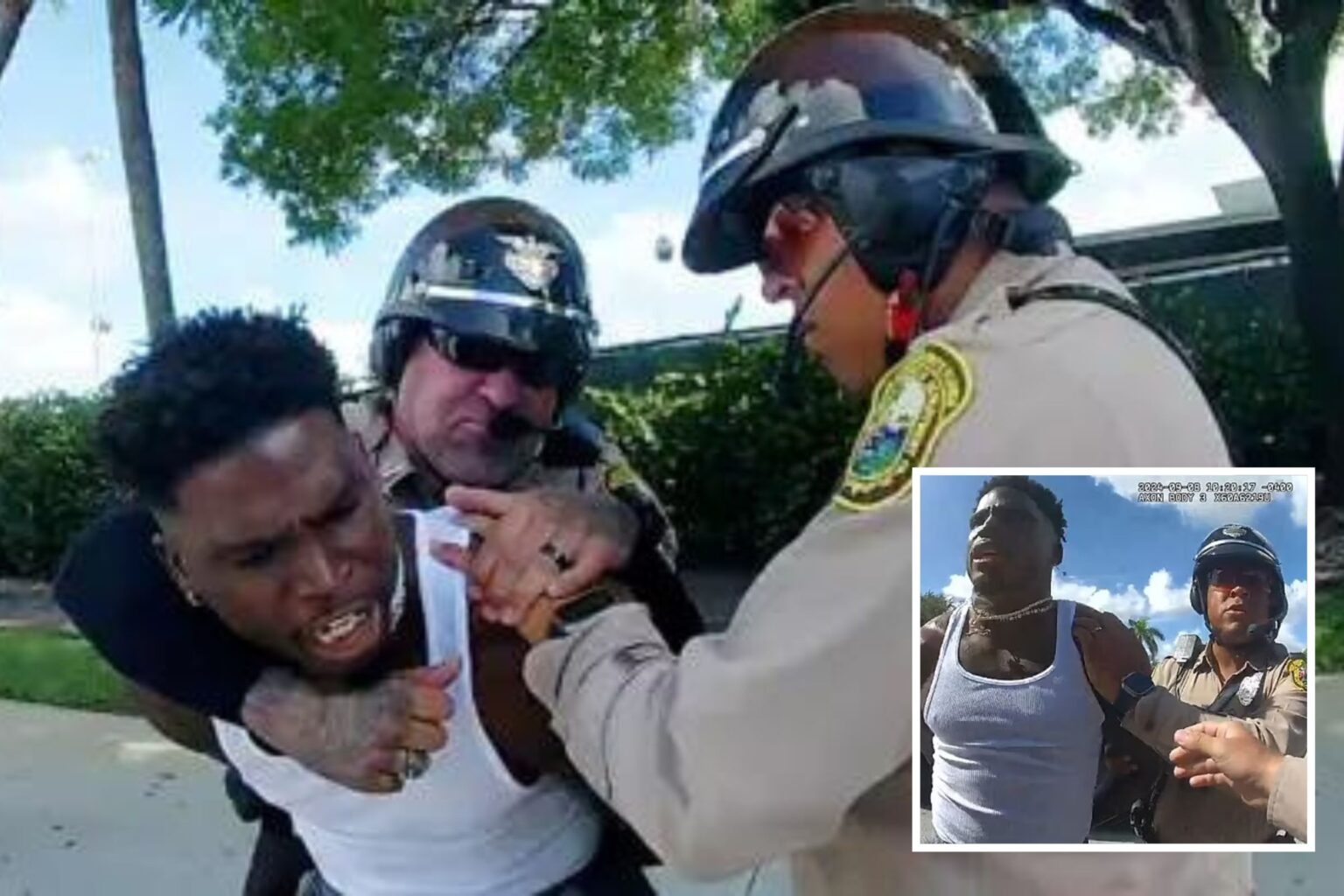The name of the Miami-Dade Police officer placed on administrative leave after Miami Dolphins player Tyreek Hill was detained Sunday has been released.
“Officer Danny Torres, 27-year tenure, remains on administrative duties, as the Internal Affairs investigation is still ongoing,” a Miami-Dade PD spokesperson told Newsweek on Tuesday. “We will provide further information once it becomes available pending the outcome of the investigation.”
Hill, 30, received two citations on Sunday: One for careless driving and another for not wearing his seatbelt. Copies of the citations provided to Newsweek state Hill was traveling at a “high rate of speed” with a “visual estimation of 60 mph” in a “high traffic of pedestrians and vehicles” area.
Hill was penalized $179 for the careless driving citation and $129 for the seatbelt violation. Officer Manuel Batista signed both citations.
These new details come after Hill was stopped while driving to the Hard Rock Stadium in Miami Gardens where the Dolphins played their season opener against the Jacksonville Jaguars. During the stop, he was roughly handcuffed and placed on the ground with several officers around him.
Although briefly detained, Hill was released in time to continue to the Dolphins’ win where he even poked fun at the incident during a touchdown celebration.
Experts Disagree on Police’s Response
After reviewing the police body camera footage of Hill’s detainment, former Boca Raton Police Chief Andrew J. Scott told Newsweek on Tuesday, “I don’t think any of the officers did anything wrong.”
Body cam footage shows officers repeatedly asking the NFLer to roll down his tinted car window, but Hill does not comply and rolls the window up.
“Had Mr. Hill complied with the officer’s request initially, and kept his window down, and listened to what the officer said, he would have been on his way in a matter of 10 minutes, gotten his citations, and moved on. That did not happen,” said Scott, who testifies across the country on police practices and procedures, including the use of force.
Scott continued, “As a well-trained police officer, this is now a potentially dangerous situation for me. I can’t see the driver. He’s not following commands. He’s in a 5000-pound vehicle that he could speed away. Maybe he’s going to grab a weapon. I’m concerned. Let me pull him out and get him onto the ground, and let’s find out what’s going on.”
Another segment of the body cam footage shows officers commanding a handcuffed Hill to sit down on the sidewalk. One officer holds Hill’s shoulder while another comes up behind him, grabs him around the back to the front of his chest, and seats him on the pavement.
“Hold on, brah. I just had surgery on my knee! I just had surgery on my knee,” Hill exclaims.
Scott says of the scene, “He [the officer] doesn’t push him down. He doesn’t throw him down. He places him on the sidewalk to make sure that Mr. Hill is complying with what is being requested.”
“Having said all of that, I’m not seeing anything in the body-worn cameras that would cause me to say my officers overreacted or my officers didn’t do what their training suggested that they should do,” he said.
However, Neill Franklin, the former Baltimore City Police Department Commissioner and Maryland State Police Department veteran appeared on CNN on Tuesday, claiming Miami-Dade police actually “escalated” the incident.
“When they were trying to get him to sit down and he says he just had surgery on his knee, one officer responds, saying something to the effect of ‘What a coincidence. Did you just have surgery on your ears?’ You know, talking about him not listening to them right away.”
“This is appalling, and this is one of the main problems we have in policing today – that police officers are not following their training,” he continued. “They’re not using de-escalation techniques that they’re trained in, and in this particular case, as I said before, they actually escalated the situation.”
Franklin went on, “They had his driver’s license. They knew who he was and where he was going. There was absolutely no reasonable suspicion whatsoever to believe that their safety was at risk, so for them to even have him step out of the car … what they did was completely against training. It did not follow case law for the reasoning they used to get him out of the car. Their safety was not at risk.”
Do you have a story Newsweek should be covering? Do you have any questions about this story? Contact LiveNews@newsweek.com
Read the full article here














